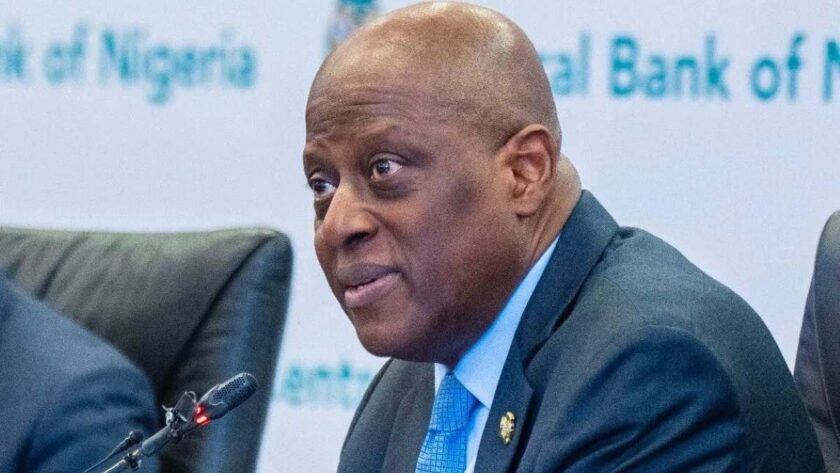16 Banks Successfully Recapitalised Ahead of Deadline – CBN
The Central Bank of Nigeria (CBN) has announced that 16 banks have so far met the new capital requirements for their various licences, some four months before the March 31, 2026 deadline.
The apex bank also indicated that 27 other banks have raised capital through various methods in one of the most extensive financial sector reforms since 2004.
Addressing journalists yesterday at the end of the Monetary Policy Committee (MPC) meeting in Abuja, CBN Governor Mr Olayemi Cardoso said the banking recapitalisation was going on orderly, consistent with the regulator’s expectations.
He said, “We are monitoring developments, and indications show the process is moving in the right direction.”
Nigeria has 44 deposit-taking banks, including seven commercial banks with international authorisation, 15 with national authorisation, four with regional authorisation, four non-interest banks, six merchant banks, seven financial holding companies and one representative office.
Cardoso explained that eight commercial banks had met the N500 billion capital requirement as of July 22, 2024, rising to 14 by September of the same year. The number has now increased to 16 as the industry continues to race toward full compliance.
He reiterated that the reforms would reinforce the resilience of Nigerian banks both within the country and across the continent.
“We are building a financial system that will be fit for purpose for the years ahead. Many Nigerian banks now operate across Africa and have been innovative across different markets. These new buffers will better equip them to manage risks in the multiple jurisdictions where they operate,” Cardoso said.
According to him, the reforms would strengthen the financial sector’s capability to support households and businesses.
He said: “Ultimately, this benefits Nigerians—our traders, our businesses and our citizens—who operate across those regions. It should give everyone comfort to know that Nigerian banks with deep local understanding are present to support them. Commercial banks are also creating their own buffers through the ongoing recapitalisation”.
He added that the apex bank considered several factors in determining the new capital thresholds, including prevailing macroeconomic conditions, stress test results and the need for stronger risk buffers. He reassured on the regulator’s commitment to strict oversight as the consolidation progresses.
“We will rigorously enforce our ‘fit and proper’ criteria for prospective new shareholders, senior management, and board members of banks, and proactively monitor the integrity of financial statements, adequacy of financial resources, and fair valuation of banks’ post-merger balance sheets,” Cardoso said.
He said the CBN remained confident that the banking system would emerge stronger at the conclusion of the recapitalization exercise, with institutions better prepared to support Nigeria’s economic transformation
Banks have up till March 31, 2026 to beef up their minimum capital base to the new standard set by the apex bank.
Under the new minimum capital base, CBN uses a distinctive definition of the new minimum capital base for each category of banks as the addition of share capital and share premium, as against the previous use of shareholders’ funds.
While most banks have shareholders’ funds in excess of the new minimum capital base, their share premium and share capital significantly fall short of the new minimum definition.
The CBN had in March 2024 released its circular on review of minimum capital requirement for commercial, merchant and non-interest banks.
The apex bank increased the new minimum capital for commercial banks with international affiliations, otherwise known as mega banks, to N500 billion; commercial banks with national authorisation, N200 billion and commercial banks with regional license, N50 billion.
Others included merchant banks, N50 billion; non-interest banks with national license, N20 billion and non-interest banks with regional license will now have N10 billion minimum capital. The 24-month timeline for compliance ends on March 31, 2026.
Under the guidelines for the recapitalisation exercise, banks are expected to subject their new equity funds to capital verification before the clearance of the allotment proposal and release of the funds to the bank for onwards completion of the offer process and addition of the new capital to its capital base.
The CBN is the final signatory in a tripartite capital verification committee that included the Securities and Exchange Commission (SEC) and the Nigeria Deposit Insurance Corporation (NDIC). The committee is saddled with scrutinising new funds being raised by banks under the ongoing banking sector recapitalisation exercise. MTN Nigeria Sets to Pay Shareholders Interim Dividend

